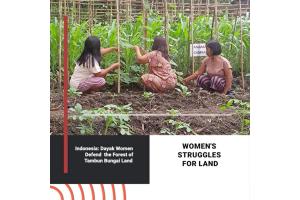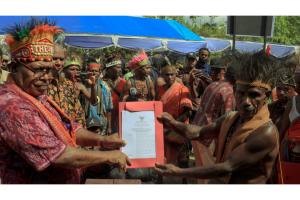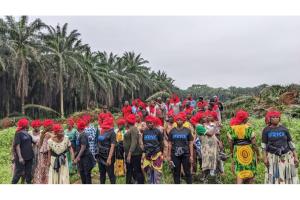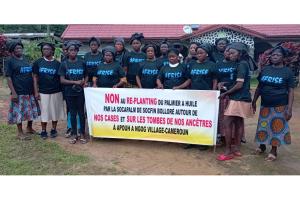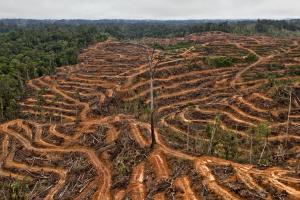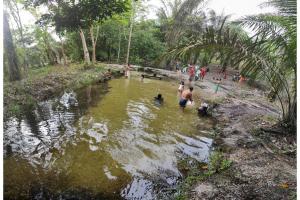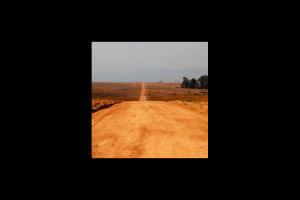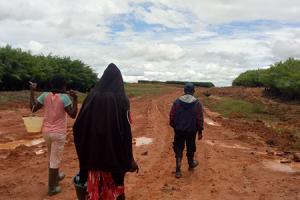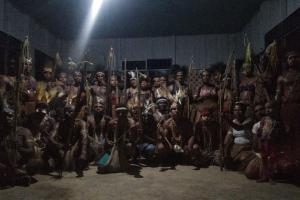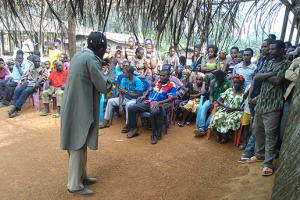Palm Oil
The oil palm tree is native to West Africa. It is an important tree for forest-dependent communities, their cultures and their economies. However, large-scale oil palm monocultures for industrial production (oil and agrofuels) have been driving deforestation and land grabbing in Southeast Asia. More recently, oil palm monocultures are also driving destruction in Africa and Latin America.
Oil palm plantations are one of the most unsafe spaces for women, not only because of their vulnerable working status packed with injustices and precarities, but also because of the potential for sexual violence and harassment. (Available in Indonesian).
The Korindo Group cleared Kinggo’s Indigenous People’s forests for its industrial oil palm plantations. Petrus Kinggo and other community leaders were persuaded to give up customary forest land with misleading and false promises. Now they are fighting against the FSC-certified Korindo. (Available in Indonesian).
Communities in West and Central Africa are facing the impacts of industrial oil palm plantations. With the false promise of bringing ‘development’, corporations, backed up with government support, have been granted millions of hectares of land for this expansion.
Patriarchal oppression is inseparable from the industrial plantation model, and it is at the base of how companies generate profits. Companies target women, including due to their fundamental role in community life.
